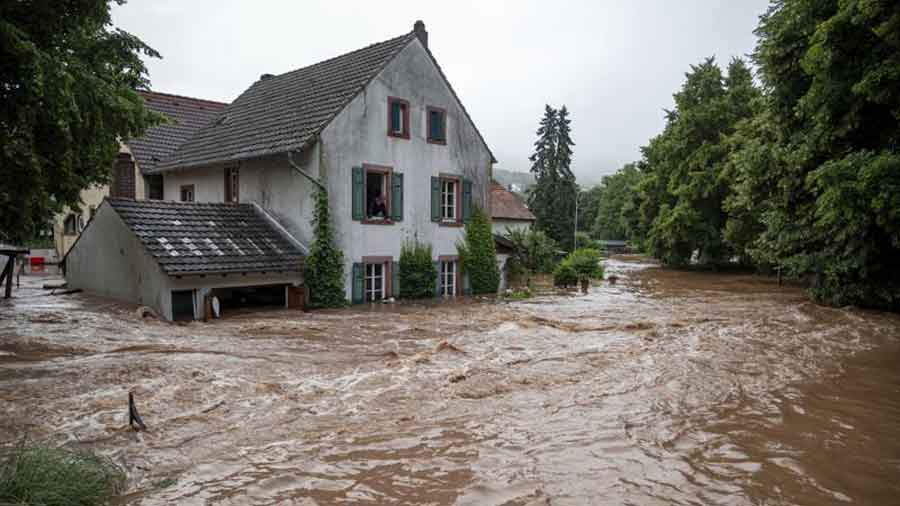Germans in the country’s west surveyed scenes of destruction as waters receded on Saturday, grieved over a rising death toll and confronted questions about how the country’s flood control systems had been so quickly overwhelmed by one of the most extreme rainfalls on record.
The death toll in Germany climbed to at least 143 on Saturday, while the toll across the border in Belgium stood at 24, the authorities there said. The count rose most sharply in Germany’s Ahrweiler district in Rhineland-Palatinate State, where the police said that more than 90 people had died and the authorities feared that the number could yet grow.
The authorities in Germany said that 600 people had been injured. Hundreds have been reported as missing, but officials have struggled to offer precise estimates: Electricity and telephone services remain inaccessible in parts of Germany, and some roads are still impassable. In Belgium, police officers took to knocking on doors in an effort to confirm the whereabouts of vulnerable residents.
Still, with floodwaters receding across parts of the region, the scale of the damage seemed certain to become clearer. Firefighters and soldiers began the daunting task of clearing debris, unclogging roads and assessing damaged buildings.
Extreme downpours like the ones that hit Germany are one of the most visible signs that the climate is changing as a result of global warming from greenhouse gas emissions. Studies have shown a warmer atmosphere can hold more moisture, generating more rainfall.
Floods of this size have not been seen in 500 or even 1,000 years, according to meteorologists and German officials.
Rhineland-Palatinate was one of the two hardest-hit German states in the west, along with North Rhine-Westphalia. The Rhine river flows through the two regions, and the rain fell so rapidly that it engorged even small streams and tributaries.
Days before roiling waters tore through western Germany, a European weather agency had issued an extreme flood warning, as models showed that storms would send rivers surging to levels that had not been seen in years.
The warnings, however, did little good.










